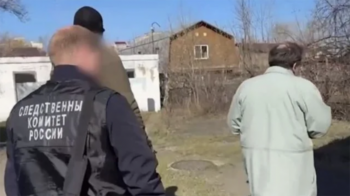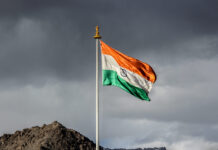
Then they came for the Catholics. The Greek Catholic Church. i.e., the Eastern church that maintains the Greek traditions and liturgy but is in full communion with Rome, is not banned in Russia. Several of its parishes operate in the Omsk region.
There, however, the FSB raided last April the Greek Catholic Parish of the Intercession of the Blessed Virgin Mary and detained its priest, 57-year-old Father Igor Maksimov, charging him with the crimes of “insulting the religious feelings of believers in places intended for worship” and “rehabilitation of Nazism.”
The FSB announced that it had found in the parish’s refectory an “icon” of early Ukrainian nationalist leaders Roman Shukhevych and Stepan Bandera and of Cardinal Josyf Slipyj with an image of the Virgin Mary, although from the police video it seems more like a picture from a book. Both the two lay leaders and Cardinal Slipyj were regarded as “Nazi collaborators” by the Soviet Union and now by Putin’s Russia, although as “Bitter Winter” reported in a series about Nazism in Ukraine, the historical record is more complicated. Maksimov also denies that the books defending Bandera and the other Ukrainian leaders belonged to him. He said he “didn’t know” who had placed them in the parish’s premises, implying they might have been planted by the FSB itself.

Maksimov was also accused of “extremism” for having allegedly argued that the Roman Catholic Church was the one true Church and criticized Putin’s war of aggression against Ukraine.
On May 22, the Greek Catholic Parish of the Intercession of the Blessed Virgin Mary was “liquidated” by the Regional Court of Omsk. But this may not be the end on the crackdown on Greek Catholics in Russia
The FSB Directorate for the Omsk Region told the media that “further investigations will have to resolve the question of on whose initiative the priest acted. It is possible that the fate of the Uniate [i.e., Greek Catholic] Church in Russia will depend on the answer to this question.” — Bitter Winter





